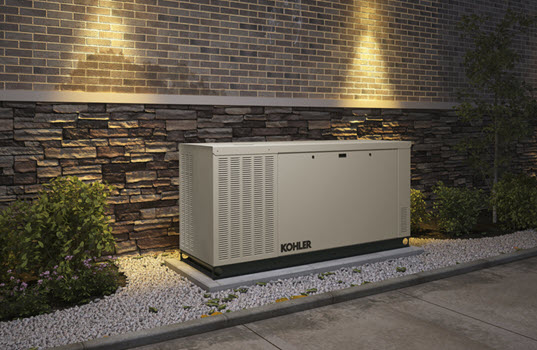They are a reliable, portable, powerful and sustainable option when the power grid goes down.
By Bryan Cordill
Power interruptions can cost American businesses as much as $150 billion per year, according to data from the Department of Energy (DOE). This staggering statistic has brought a renewed attention and desire for commercial remote and standby power generators from a wide range of businesses and industries across the United States. It’s also putting a spotlight on energy solutions that can boast resiliency in the face of power interruptions, whatever the case may be.
Whether brought on by inclement weather or growing electricity demands being placed on the country’s century-old grid, power outages can take a toll on operations—especially those that have the potential to lose expensive inventory if the power goes out.
Propane marketers can capitalize on this opportunity by offering their customers propane-powered generators. For the customers, propane generators can protect businesses from losing valuable equipment, inventory or infrastructure when the power grid goes down—and they offer clear advantages over other options when considering resiliency, performance, environmental impact and reliability.
Energy Resiliency
Whether located on the power grid or off the beaten path, propane generators provide a dependable power generation solution. Because propane is an independent and highly portable energy source, propane can supply power and energy resiliency to businesses regardless of their location—making it an ideal generator energy source.
Versatile Performance
Propane generators are available in a wide variety of capacities, so there’s a model that will meet the needs of any building or facility. Notably, propane can provide power to ports, hospitals, offices, data centers and communications, fire and police departments, restaurants, hospitality buildings and more. In addition to protecting buildings and businesses from losses due to power outages, propane generators are also able to meet code requirements for emergency power that requires on-site storage.
Propane generators are also powerful enough to meet jobsite demands during construction. Once commissioned, propane generators can be configured to service only the most critical building loads or to maintain full operation in the event of a power failure. They can also be configured to help with peak-shaving and demand-response programs that provide additional revenue for businesses.
Eco-friendly Operation
Customers are not only looking for a reliable power solution but also seeking equipment with a low emissions profile. Ensuring a sustainable operation is more important than ever, making propane generators a compelling solution. Propane generators produce significantly fewer emissions than their diesel counterparts, providing customers with a clean operation.
Most notably, propane burns cleaner than diesel, reducing emissions such as nitrous oxides (NOx), sulfur oxides (SOx), particulate matter and carbon dioxide. Data from the DOE shows 16% greater carbon dioxide emissions per unit of energy for diesel compared with propane.
Additionally, when the fuel is stored on-site, either above or below ground, you don’t risk land or groundwater contamination. Diesel, on the other hand, has the potential for contamination from spills and leaks that are retained in the soil.
Proven Reliability
Propane is a stable, reliable energy source that doesn’t degrade over time like diesel does. Many manufacturers are taking notice and, as a result, are creating more propane-powered product offerings. For example, Qnergy—a clean-technology manufacturer of power generation systems—paired propane with its Stirling engine in an effort to bring resiliency and peace of mind to the next level. While the company’s generator can work seamlessly with multiple fuel sources, Qnergy found that running it on propane further enhances the system’s value proposition and better reinforces the equipment’s resiliency, reliability and sustainable operation.
Qnergy’s Stirling engine is known for its reliable, zero-maintenance operation—even through extreme temperatures, high humidity, flood plains and high winds. Notably, many major and independent oil and gas companies rely on Qnergy’s propane-powered technology to meet their remote power needs, and businesses using this generator saw 100% uptime during the 2021 Texas power crisis brought on by severe winter storms and electrical grid failures.
To learn more about the benefits of propane-powered generators, visit Propane.com.
 Bryan Cordill is the director of residential and commercial business development for the Propane Education & Research Council. He can be reached at [email protected].
Bryan Cordill is the director of residential and commercial business development for the Propane Education & Research Council. He can be reached at [email protected].








